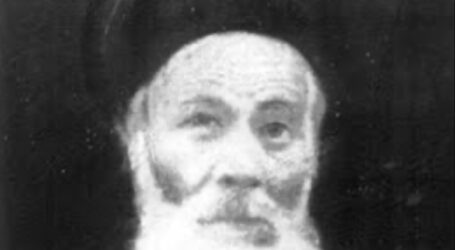Muhammad Ali: Biography

Muhammad Ali
Born: 1769, Kavala
Died: August 2, 1849, Alexandria
Muhammed Ali was the ruler, pasha (high level political and military Ottoman rank granted by the Sultan), and viceroy of Egypt. Muhammad Ali was born in 1796 in Kavala. Little is known about his background and early life, he was probably of Albanian origins, and was a subject of the Ottoman empire. His father was a military commander of a small section and when he died he was brought up by the governor of Kavala. When he was 32 years old, he was one of the military commanders of a small force sent to protect Egypt from the French and by 1805 he became the Wali (Viceroy) of Egypt with the rank of Pasha.
Muhammed Ali eliminated the ruling oligarchy of Egypt, the Mamluks, when he invited them to a celebration and when they arrived, Muhammad Ali had his soldiers kill them. He was a major reformer, he introduced major agricultural reforms like converting ownership of most of the agricultural land to the state, improving irrigation systems, and planting cash crops such as cotton for higher profits to the Egyptian state. He also played an important role in the An-Nahda or Arab Enlightenment. During Napoleon’s invasion of Egypt and Syria, he brought with him a new technology, the printing press. After Napoleon’s expulsion, Muhammad Ali continued its use to print works like translations, legal codes, and cultural literature. He also sent Egyptians like Rifa’a Al-Tahtawi, an important figure in the Arab Enlightenment, to Europe to study medicine and engineering and conscripted peasants to his army.
This conscription was not popular amongst his subjects. In 1834, peasants in Palestine revolted against his taxation and conscription policies. The rebellion fought in many cities including the Galilee and Gaza before ultimately facing defeat in the Battle of Hebron. Ali’s troops killed many rebels and took other Muslims as conscripts. The Jews of Hebron had nothing to do with the rebellion and believed that they would be safe under Ali’s protection, yet Egyptian soldiers did not distinguish between Muslims and Jews and massacred them both.
In 1839, the British Jewish Financier Sir Moses Montefiore who traveled extensively throughout the Holy Land proposed a plan to Muhammad Ali. In The Diaries of Sir Moses and Lady Montefiore, he writes of his plan to Muhammad Ali which would revitalize the Holy Land and encourage Jewish emigration writing that :
“In the first instance, I shall apply to Mohhammad Ali for a grant of land for fifty years; some one or two hundred villages; giving him an increased rent of from ten to twenty per cent., and paying the whole in money annually at Alexandria, but the land and villages to be free, during the whole term, from every tax or rate either of Pasha or governor of the several districts; and liberty being accorded to dispose of the produce in any quarter of the globe. This grant obtained, I shall, please Heaven, on my return to England, form a company for the cultivation of the land and the encouragement of our brethren in Europe to return to Palestine. Many Jews now emigrate to New South Wales, Canada, &c.; but in the Holy Land they would find a greater certainty of success; here they will find wells already dug, olives and vines already planted, and a land so rich as to require little manure. By degrees I hope to induce the return of thousands of our brethren to the Land of Israel. I am sure they would be happy in the enjoyment of the observance of our holy religion, in a manner which is impossible in Europe.”
Sir Moses Montefiore would go on to have a meeting with the Pasha Muhammad Ali writing:
“Referring to the one for renting land of him in Palestine, he said he had no land there, but any contract I might make with the Mussulmans should have his approval, and he would send it to Constantinople for confirmation.”On repeating that I had been led to believe that his Highness possessed land there, from information I had received when in the country, he replied that if I could point out the parts belonging to him, I could have them.”He said he would be glad to see the land better cultivated, and I might send proper persons with agricultural implements.”
He would also discuss creating a joint-stock company with “a capital of 1,000,000 sterling” and Muhammad Ali’s “eyes sparkled at this; he appeared delighted, and assured me the bank should have his protection, and he should be happy to see it established.”
However, in 1840 Muhammad Ali would fall from power after he challenged the Sultan as a result of increasing confidence gained from his victorious military campaigns in Arabia and Sudan. The European powers of Great Britain, the Russian Empire, Austrian Empire and Prussian Empire all intervened in mid-1840 putting a stop to his expansion. The European powers gave him hereditary right to rule Egypt but his powers were restricted. He died on August 2, 1849 in Alexandria.
Sources:
Muhammad Ali – Encyclopedia Britannica
The Beginning of Printing in Egypt
The Diaries of Sir Moses and Lady Montefiore
The Jews: Their History, Culture, and Religion by Louis Finkelstein





